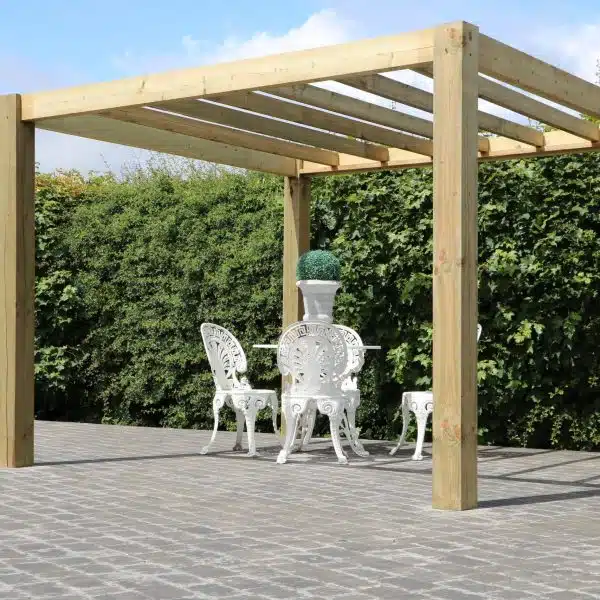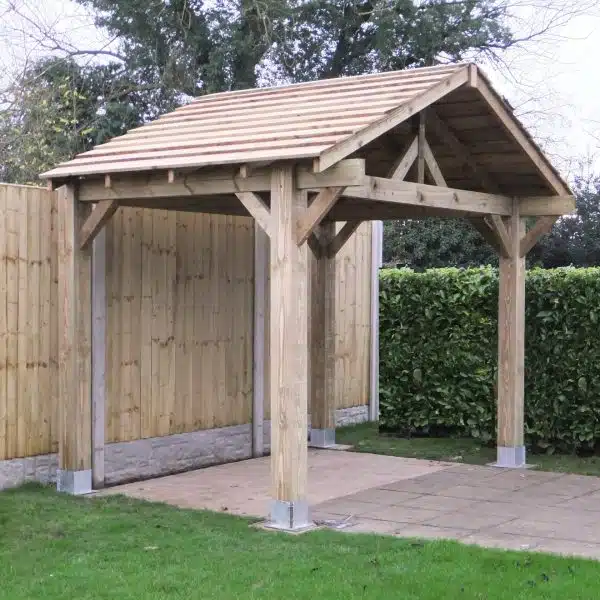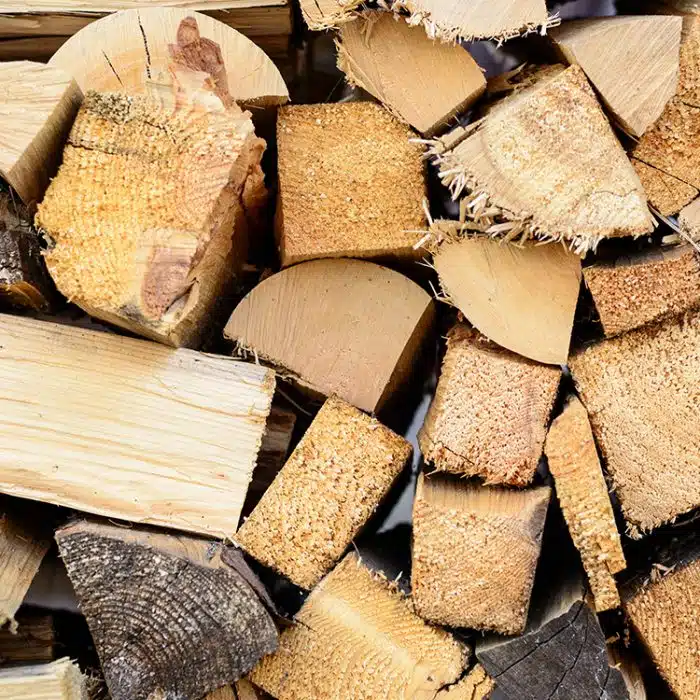Timber

Wood has several great qualities. First, it’s highly customisable and second, it’s all within the realm of possibility when working with wood, plus it stays warm in cold weather if you’re already two steps ahead and thinking about insulation.
There are wooden sheds for every budget (cedar is the most expensive) and tried-and-true methods for making wood pest and rot-resistant (cedar is also the most pest and rot-resistant). Wood… it’s the aesthetics.
Wooden sheds should sit on timber bearers – the elevation keeps damp and rot from getting in – and weather bars (strips of wood) over and under the door will help to keep the rain out.
Here are a few other things to keep in mind when building a shed out of wood:
- The roof should overhang the sides by at least five centimetres and the front and back by at least seven and a half centimetres in order to keep out as much rain as possible.
- Your windows should have sloping sills with a drip groove, which helps water to drain and keeps your windows (one of the most vulnerable areas of a wooden shed) more likely to remain rot-free.
- Always build from the ground up. Start with your foundation before you consider your walls and leave the roof for last.
Treat your wood (before you build, not after), either via dip treatment or pressure treatment, to give your shed a longer, more robust life. Dip treatment, as it is quicker and less costly, is more common than pressure treatment (or PT) but must be reapplied every year. PT wood (which turns a bit greenish after the treatment) is effectively protected against rot for up to fifteen years.
Metal

Metal sheds made from either aluminium or galvanised steel are usually coated in a baked-enamel finish. This coating helps to prevent scratches and rust and renders the shed rugged – weatherproof and durable (and it helps that they come in a variety of colours too).
Consider a metal shed if:
- You’re storing valuables (some come with sliding doors and locking systems that prevent the roof or doors from being prised open).
- You know exactly what you want (metal sheds are designed to last. It’s hard to add features like windows, for example, later on).
- You don’t mind a drop of rain (condensation can drip from the roof).
- You are budget conscious but don’t want to compromise on sturdiness.
Tip: A metal shed in full sunlight can get quite warm. Consider placing yours in partial shade – if you’re thinking about putting your shed under a tree, evaluate the safety and stability of the branches overhead first.
Vinyl

Think snug, solid construction, secure steel doors and rust resistance. Most are built with double-wall vinyl panels, which resist dents and rot (they don’t peel either). Their durability may come at a price but will likely pay for itself over time.
Benefits:
- Vinyl sheds are ideal in harsher climates and can endure weather extremes.
- Their stability – vinyl panels are cut to exact standards, ensuring that they fit snugly together.
- They require virtually no maintenance.
Tip: When choosing a location for your shed, your best bet is the driest area of your garden. Avoid any spots that are prone to flooding.
Plastic

Plastic is affordable, cost-effective, and easy to move around, making plastic sheds a convenient choice for renters or highly mobile families. Keep in mind that plastic sheds are lighter than metal or wooden ones, so they’ll need to be anchored down to have protection against high winds.
Benefits:
- You don’t need too much room – they tend to run on the smaller side.
- Ease of assembly.
- Temporary storage solution.
- If your biggest priority is your budget.
Are Plastic Sheds Better Than Wood?

As with the idea of ‘good’, ‘better’ will depend on your wants and needs.
Price: Plastic will probably edge out wood as being cheaper.
Life: If maintained properly, a timber shed can last as long as a plastic one.
Durability: Both plastic and timber sheds are very durable. With wood being heavier, though, it might stand up better in harsh storms.
Maintenance: Plastic is a lot lower maintenance than wood. The cost of wood treatment, stain, and paint should factor into your decision.
Aesthetics: Plastic sheds have come a long way with looks. But if you want a more rustic feel in your garden, go with a wooden shed.
Customisation: Lower cost and maintenance will mean that you can’t paint your plastic shed, though. Adding to it with shelving etc. might also prove difficult.
Are Plastic Sheds Better Than Metal?

A metal shed might provide good levels of security, but walls can easily become dented. You will also have to treat your shed against rust and install vents or insulate it. This will also help to stop condensation in metal sheds.
Security: Metal sheds may be slightly more secure if bolted to concrete. Lightweight plastic will arguably be safer, though.
Maintenance: Like wood, metal requires regular maintenance against rust and corrosion. Plastic, on the other hand, doesn’t.
Price: Basic metal sheds may be cheaper than heavy-duty plastic ones. But a quality metal shed will be around the same price point.
Weather-resistant: Whilst metal sheds will have a pent or apex roof for runoff, they’re still prone to water ingress at the base.







